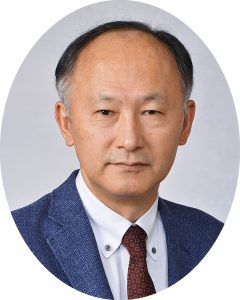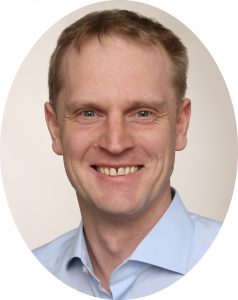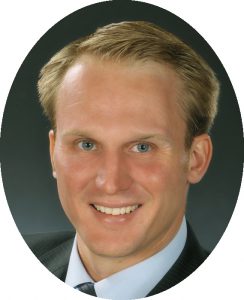Plenary Talk
Presenter:
Prof. Shinobu Yoshimura
Department of Systems Innovation, School of Engineering, The University of Tokyo

Title:
Parallel Partitioned FSI Simulation of Flapping Aerodynamics of MAV Using ADVENTURE and FFB
Abstract:
In this presentation, we will talk about the development of a parallel partitioned coupling simulation system using general-purpose parallel computational mechanics softwares such as ADVENTURE and FFB. As one of practical applications, we have applied the system to investigate flapping aerodynamics of micro air veihicles (MAVs), especially focusing on effects of active and passive pitch in hovering mode.
Biography:
Professor Yoshimura has published 265 peer reviewed journal papers, 70 review papers and 7 books. He has been working on High-performance and Intelligent Computational Mechanics with Real World’s Applications for 32 years.
Among his wide research activities, the most distinguished and well-recognized achievement is the R&D of the advanced parallel finite element analysis software known as ADVENTURE system (https://adventure.sys.t.u-tokyo.ac.jp) since 1997, leading more than 20 investigators. The ADVENTURE system is very unique open source CAE software that enables very precise analyses of practical structures and machines using over 100 million to billions DOF mesh. Those analyses can be performed very efficiently and easily not only on ordinary PC clusters, but also on latest massively parallel computers such as the Earth simulator, Blue Gene/L and the K-computer. Since Dec. 2002, 43,596 modules of the system have been downloaded by 10,008 registered users worldwide. Its commercial version named ADVENTURECluster has also been widely adopted in automobile, E&E/ICT, heavy, space, material and construction industries. Since January 2015, he has been leading a new national HPC project, i.e. FLAGSHIP20220 Priority Issue 6 (https://postk6.t.u-tokyo.ac.jp/en/), to extend the simulation system towards Exaflops computer to appear in 2020.
Furthermore, Professor Yoshimura has been developing a general-purpose platform of parallel partitioned coupling techniques with nonlinear iterations, named ADVENTURE_Coupler and REVOCAP_Coupler, which ensure accuracy, parallel-efficiency, robustness as well as flexibility. The ADVENTURE’s parallel solvers together with the coupling platform enable large-scale parallel coupled analyses of very complicated structures including Fluid-Structure Interaction, Acoustic Fluid-Structure Interaction, Magneto-Structure Interaction and Structure-Structure Interaction. In the FLAGSHIP2020 Priority Issue 6 Project on “Accelerated Development of Innovative Clean Energy Systems”, he is developing Multiscale and Multiphysics Integrated Simulators for Coal Gasification Combustion Plants as well as Large Scale Offshore Wind Farms as Digital Twin of such large-scale and complex physical system, fully utilizing the performance of Exaflops computer such as the Post-K computer.
In summary, his achievements include scientific impacts through the R&D of innovative algorithms, engineering impacts through the R&D of practical software, and social impacts through its dissemination to the society as open source as well as the solutions of never solved real world’s problems. The technologies he has developed would become de Fact Standard of large scale coupled finite element analyses for high-performance computing of petaflops to exaflops scale.
He was also the founding chair of JSME Certification Program for Computational Mechanics Engineers (http://www.jsme.or.jp/cee/cmnintei.htm), which has already certified 8,971 computational mechanics engineers since 2003.
Invited Talk
Presenter:
Prof. Arne Naegel
Goethe-Center for Scientific Computing, Goethe University Frankfurt

Title:
Efficient Solution of Transient Problems in the Software UG4
Abstract:
Many problems in porous media science and geophysics comprise interactions of processes, and are typically formulated as a system of coupled PDEs. In most cases these systems are transient and often also non-linear. Developing efficient solvers is a delicate task, since one must to combine suitable schemes for (i) time integration, (ii) linearization, and (iii) (geometric and/or algebraic) multilevel solvers, finally being employed in a (iv) parallel computing environment. In this presentation, we take an application oriented approach, and discuss problems from poroelasticity, density-driven-flow and the Navier-Stokes equations. For these classes, we describe a unified framework, using linearly-implicit time integration and parallel adaptive multilevel solvers, and provide numerical results.
Biography:
ARNE NAEGEL is a mathematician and works as Research Scientist and Lecturer at the Goethe-Center for Scientific Computing at the University of Frankfurt am Main, Germany. He obtained his doctoral degree (Dr. rer. nat.) at the Ruprecht-Karls-University in Heidelberg in 2010. His research focuses on the development of fast multilevel solvers for partial differential equations, and modeling and simulation for a wide range of problems in science and technology. Applications include transport in the subsurface, such as density-driven flow, as well as problems from biology and pharmaceutical sciences.
Invited Talk
Presenter:
Prof. Andreas Vogel
High Performance Computing in the Engineering Sciences, Department of Civil and Environmental Engineering, Ruhr University Bochum, Germany

Title:
Parallel and adaptive simulations in science and engineering using geometric multigrid
Abstract:
The geometric multigrid method is an efficient and highly-scalable method to solve large sparse systems of equations stemming from the discretization of partial differential equations. We provide an overview about our implementation of the method for adaptive mesh refinement and parallelization on state-of-the-art high-performance systems focussing on distributed-memory architectures. We demonstrate the applicability on a variety of problems including PDE continuum model simulations and numerical optimization.
Biography:
Andreas Vogel received a Diploma in physics and a Diploma in mathematics from the Ruprecht-Karls-University Heidelberg, Germany, in 2008. He received a PhD in Informatics (Dr. phil. nat.) in 2014 from the Goethe University Frankfurt, Germany. From 2008 to 2017, he was a research fellow at the Goethe-Center for Scientific Computing in Frankfurt and engaged in several high-performance computing projects with a focus on the parallelization of multigrid solvers and their efficient implementation on state-of-the-art computing systems. He is currently a Professor at the Department of Civil and Environmental Engineering at Ruhr University Bochum, Germany, and leads the research group High Performance Computing in the Engineering Sciences. His research interests are algorithmic research and software development for high-performance computing applications focused on the usage of largest computer clusters and an efficient scaling of simulation codes.


